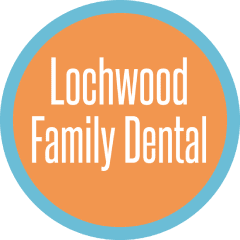Choosing the right toothbrush is crucial if you want to maintain good oral hygiene. The wrong brush head or bristle texture could cause damage or fail to clean your teeth and gums properly. While there are many different types of toothbrushes in Dallas, TX, the main debate for most patients seems to be between manual and electric. Both toothbrushes have their own advantages and disadvantages that could play a big factor in which one is right for you.

Electric Vs. Manual Toothbrushes in Dallas, TX
Electric toothbrushes are starting to become a common recommendation from many dentists. This is because the oscillating electric heads can typically clean more plaque and other harmful bacteria than manual brushing alone. However, not every patient will benefit from the use of an electric toothbrush. Here are the pros and cons of each type to help you decide.
Electric
Electric toothbrushes come in a variety of styles, and the heads can be swapped out to fit a variety of shapes and sizes as well. Within the electric toothbrush world, you’ll have a few different companies to choose from. While each is slightly different from the next, they will, overall, have the same pros and cons.
Pros:
- Generally, more efficient cleaning
- Timing devices to ensure a two-minute brushing
- Sensors to indicate weak or strong brushing pressure
Cons:
- Heavier weight, harder to hold for some patients
- Costly, compared to manual brushes
- Could potentially cause gum abrasion and enamel loss for some patients
Manual
Manual toothbrushes are, in and of themselves, a bit difficult to navigate. There are plenty of variations in bristle hardness and length, as well as head size and shape. If you do decide that a manual toothbrush is right for you, you’ll still have to figure out which kind of manual brush is best. While the pros and cons change depending on your choice, there are some similarities between all manual brushes.
Pros:
- More cost-effective
- Less heavy and easier to maneuver for some patients
- Greater control over brushing speed and pressure
Cons:
- Generally less effective at removing plaque
- Can be difficult to know how well you are brushing or for how long
- Many, sometimes confusing, options to choose from
How to Choose
Knowing which toothbrush is right for you isn’t always easy, especially right off the bat. For most patients, there’s going to be some experimentation to determine what’s best for their oral hygiene needs. The best way to help narrow down your options is to discuss your brushing with your dentist. After examining and cleaning your teeth, your dentist can generally tell how well your at-home brushing is performing. If you’re struggling to remove plaque or have gum recession and enamel loss, they may suggest an alternate toothbrush to help keep your mouth strong and healthy.
If you’re having trouble deciding what kind of toothbrush is right for you, you’re not alone. At Lochwood Family Dental, we believe in helping every patient find the perfect toothbrush for their oral health. Call us today at 214-544-9633 to schedule a consultation and learn more about your toothbrush options.
